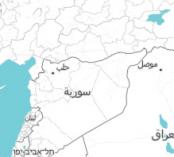
The outbreak of polio in the Syrian Arab Republic announced by the World Health Organization a few weeks ago is a troubling reminder that global conflicts threaten the public’s health. Violence, like the 2-1/2-year-old civil war in Syria, can lead to significant disruption and/or long term damage to the public health infrastructure, including basic sanitation efforts, maintenance of a safe water supply, basic nutritional needs, and disease monitoring and prevention.
Because of the Global Polio Eradication Initiative, this latest outbreak is especially troubling. But it should not be surprising. The displacement of so many Syrians fleeing the fighting has devastated the county’s once robust public health infrastructure and stymied immunization efforts. Syria had been polio-free for a decade. Ten polio cases, with many more likely to be reported, are now confirmed.
Polio, technically known as poliomyelitis, is a viral disease that can lead to full or partial paralysis, and sometimes death. The United States experienced periodic local polio epidemics until the development of the Salk and Sabin vaccines, introduced in 1955 and 1963 respectively. Before the vaccines were introduced, tens of thousands of Americans contracted the virus, which could leave them either partially or completely paralyzed. Dr. Jonah Salk’s birthday, Oct. 24, is now celebrated as World Polio Day.
Syria isn’t, of course, the only nation in conflict where polio threatens the health of the population. But there's a theme: In Pakistan, a Taliban ban on vaccination in the North Waziristan region under its control has resulted in the crippling of many children whose health and mobility might have been preserved by inoculation with polio vaccine. The CIA’s use of a fake vaccine campaign in its effort to hunt down Osama bin Laden didn’t help, fomenting distrust and leading to the murder of polio vaccine workers. For similar reasons polio remains endemic in portions of Afghanistan and in portions of Nigeria.
The full article continues at http://www.philly.com/philly/blogs/public_health/The-cost-of-war-Polio-rises-again-in-Syria.html on Philly.com’s website.

